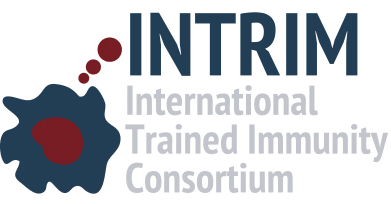Modulation of immune response by bioactive molecules in macrophages
National Institute of Allergy and Infectious Diseases, National Institute of Health, Bethesda, MD, USA
Research topic
Macrophage cells constitute the first barrier against infections and are thus an optimal model to study the innate immune response. Recent studies show that past exposures can shape the immune response to a new infection in innate immune cells such as monocytes and macrophages. Such past exposures can be infections, danger associated tissue signals, vaccines, dietary factors or a variety of other external and environmental factors that can ‘train’ the immune response over extended periods of time. Epigenetic modulation of chromatin contributes to the establishment of this ‘innate immune memory’ or ‘trained immunity’. Comprehensive analysis of bioactive molecules, including hormones and neurotransmitters that may exert trained immunity to immune cells, is needed to understand the complexities of the gene environment interaction and regulation of the innate immune response. Our research program is focused on the design, implementation, and interpretation of screening efforts to identify and determine the interactions among the components in innate immune signaling networks. We use high-throughput genetic screening to identify key pathway regulators, and a combination of cell biology, biochemistry, and molecular biology to characterize their function. Our goal is to obtain a better understanding of how PRR signaling pathways control the macrophage inflammatory state, and ultimately to develop strategies to regulate these responses in human inflammatory diseases. Using this approach we have previously identified genes modulating both inflammatory and interferon gene programs in activated macrophage.
In the context of innate immune training, we are currently employing our screening platforms to identify bioactive molecules that can impart lasting modifications to macrophage responses.
Group leaders
- Iain D.C. Fraser, PhD, Senior Investigator and Chief, Signaling System Section, Laboratory of Immune System Biology, NIAID
- Sinu P. John, PhD, Staff Scientist, Signaling System Section, Laboratory of Immune System Biology, NIAID.
Group members
- Clinton Bradfield, PhD, Postdoctoral fellow
- Lulwah Alsalih, Graduate Student
Selected Publications
- John SP, Sun J, Carlson R, Cao B, Bradford C, Smelkinson M and Fraser ID (2018). IFIT1 exerts opposing regulatory effects on the inflammatory and interferon gene programs in LPS-activated human macrophages. Cell Rep. 25 (1), 95-106.e6.
- Oh KS, Gottschalk RA, Lounsbury NW, Sun J, Dorrington MG, Baek S, Sun G, Wang Z, Krauss KS, Milner JD, Dutta B, Hager GL, Sung MH, Fraser IDC. (2018). Dual Roles for Ikaros in Regulation of Macrophage Chromatin State and Inflammatory Gene Expression. J Immunol. 2018 Jul 15;201(2):757-771
- Oh KS, Patel H, Gottschalk RA, Lee WS, Baek S, Fraser IDC, Hager GL, Sung MH. (2017). Anti-Inflammatory Chromatinscape Suggests Alternative Mechanisms of Glucocorticoid Receptor Action. Immunity. 15;47(2):298-309.e5
- Li N, Sun J, Benet ZL, Wang Z, Al-Khodor S, John SP, Lin B, Sung MH, Fraser ID. (2015). Development of a cell system for siRNA screening of pathogen responses in human and mouse macrophages. Sci Rep. 5, 9559
Financial support
Our research is supported by the intramural research funding from National Institute of Allergy and Infectious Diseases.
